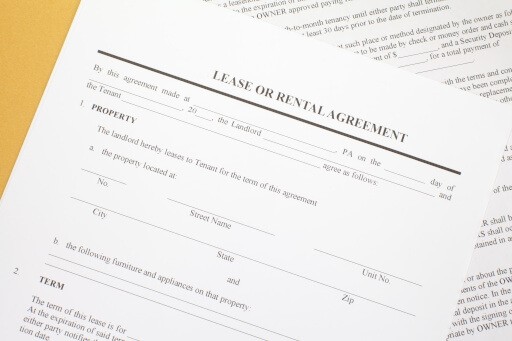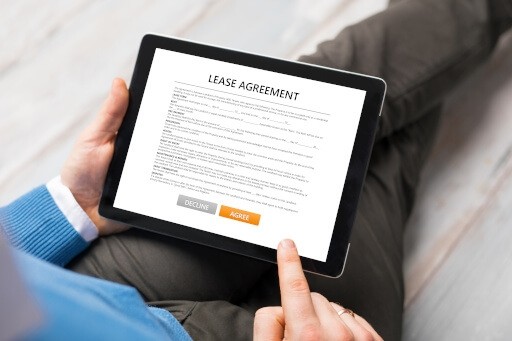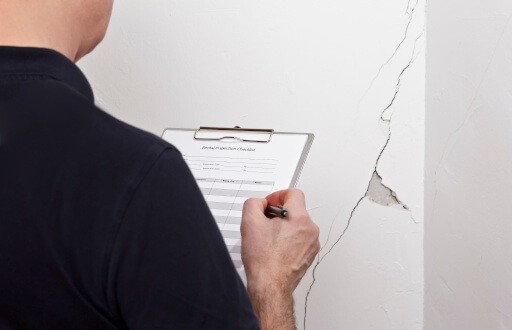As a landlord, there will be times that you will want a tenant to vacate your property. Even if they’ve overstayed their lease end date, stopped paying rent, or break the lease in some way, you will never be able to perform a self-help eviction. You may start the eviction process as long as your reasoning falls under the legal reasons to evict a tenant in your jurisdiction, but you must follow federal and state laws.
What Is a Self-Help Eviction?
Self-help eviction is when a landlord reclaims possession of their rental property without going through the steps of the legal eviction process. Self-help evictions are illegal in almost every state and should never be used as a way to force a tenant to vacate your rental property. The two most common forms of performing a self-help eviction are:
Locking out a tenant
Landlords who illegally perform self-help evictions most commonly wait until the tenant has left the property, either for work, vacation, to run errands, etc., to change the locks so the tenant can no longer access the property. Although the property belongs to the landlord, it is illegal to lock a tenant out of the rental property until you have gone through the formal eviction process.
Shutting off essential utilities
Landlords may also choose to call the electric, water, or gas companies and cancel service to the property. As a landlord, you must provide a habitable living space for your tenants. By shutting off the utilities, you keep tenants from water, gas, and other essential utilities, making the property inhabitable.
Most landlords understand that changing the locks on a tenant and shutting off essential utilities will get them into hot water. However, others still think that other methods of a self-help eviction are somehow acceptable.
Other Illegal Forms of Self-Help Evictions
Although these methods are not used as often and aren’t necessarily as obvious, they are still illegal and considered self-help evictions.
- Moving the tenant’s belongings out of the unit or placing them in the trash
- Posting any intimidating or threatening letter to the tenant’s door
- Threatening the tenant with violence in any way
- Refusing to make repairs that fall under keeping the unit habitable
- Preventing the tenant from having access to amenities like bathrooms, parking, garages, etc.
In most cases where self-help evictions are involved, tenants have given landlords legal reason to begin the eviction process, such as not paying rent. But because the landlord chooses to go about the eviction illegally by performing a self-help eviction, they weaken their eviction case and will likely get into legal trouble themselves.
What If the Landlord Pays the Utilities?
Many landlords opt to manage the tenants’ utilities or at least some of them. Having the utilities in your name as the landlord is a great way to ensure that bills get paid on time, and it can prevent liens from being put on your property. However, if a tenant stops paying rent (and any associated late fees), they will likely refuse to pay for utilities.
Even if the utility bills are in your name, shutting off essential utility services to the property while a tenant is living there is still illegal. Not having cable TV or internet won’t make the unit inhabitable (although most tenants set up these utilities in their names), but remember, you must maintain the essential utilities: water, electricity, and heat.
The Legal Consequences Of Performing Self-Help Evictions
When you’re busy and frustrated, self-help evictions can seem like a convenient solution. They cause more harm than good and can get you into serious legal trouble. While the consequences vary from state to state, here are some of the repercussions you may face for engaging in this unlawful action:
- Tenants can sue you for damages
- A landlord must pay back prepaid rent and security deposit if the tenant terminates the lease agreement
- The tenant may hit you with an injunction to prohibit any additional violations
- The tenant can hit you with a civil action
- A landlord may be prosecuted with a misdemeanor
- A landlord may be subject to six months in jail
How to Legally Start the Formal Eviction Process
When a tenant doesn’t pay rent, is actively causing damage to the property, or has overstayed their welcome (past their lease end date), it’s understandable that the landlord would try to protect their income and investment. The tenant has broken the lease, and with that neglect comes consequences for the landlord. You may not be able to pay the mortgage without your monthly income. Suppose the tenant is physically damaging the property. In that case, there will be repairs to deal with for days, weeks, or months after the tenant leaves, preventing you from finding a new tenant and having a steady rental income again.
Although it’s frustrating when a tenant breaks the lease, you must remain professional and remember that there is no valid reason to take the law into your own hands. It’s time to start the formal eviction process. To legally evict your tenant, you’ll need to:
- Understand eviction laws, both federal and state
- Have a valid reason for eviction (e.g., nonpayment of rent, property damage, expiration of the lease, etc.)
- Attempt to reason with tenants to avoid eviction, if possible
- Give formal notice of eviction to the tenant
- File the eviction with your local court system
- Prepare for and attend the court hearing
- Evict the tenant (if you win the case)
- Collect any unpaid rent or funds for damages, if applicable
The goal for every landlord is to find a great tenant who meets their qualifications to rent, pays rent on time and abides by the lease agreement. In order to find a great tenant, you should screen all prospective renters. View credit reports, past evictions, and criminal history to get an idea of their history as a renter. No matter how well you screen, it's still possible to find yourself in a situation where your tenant stops paying rent, damages your property, breaks the lease, or remains in the property past their lease end date and refuses to leave. You may find yourself starting the formal eviction process. If something like this happens, remember illegally forcing your tenant to vacate without due process will give you a fine, potentially costing you even more than it would have to go through the proper eviction process. Remain professional, avoid self-help evictions, and follow the standard procedure for evicting your tenant.
Frequently Asked Questions
What should I do if my property management company is attempting to self evict a tenant in my rental property?
If you witness your property management company self-evicting a tenant from your property, ask them to stop. Have them explain the situation to you, and if necessary, conduct a legal eviction.
Should I take legal action against tenants after a legal eviction takes place?
It depends. If the tenant destroys your property or doesn’t pay rent before they leave, you could sue them for damages, go to a small claims court, or send the tenant to a collections agency.











